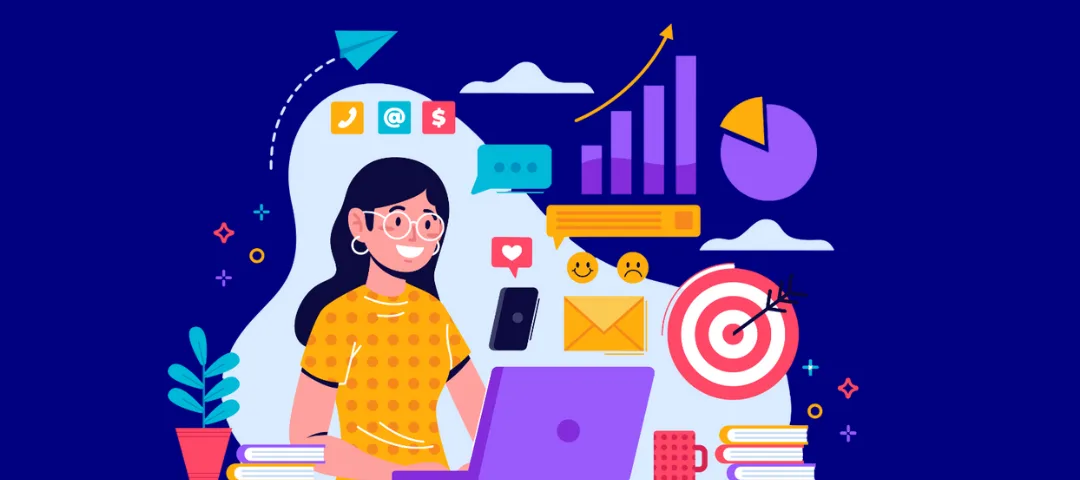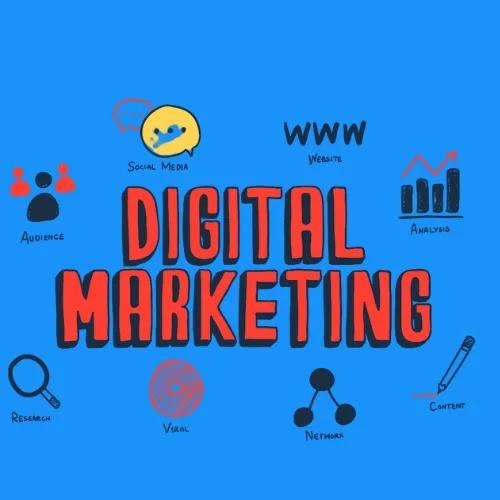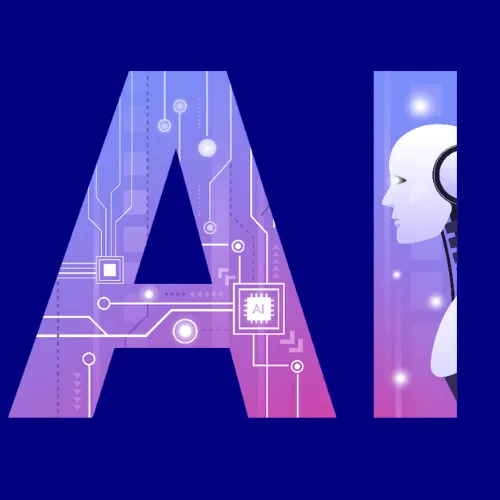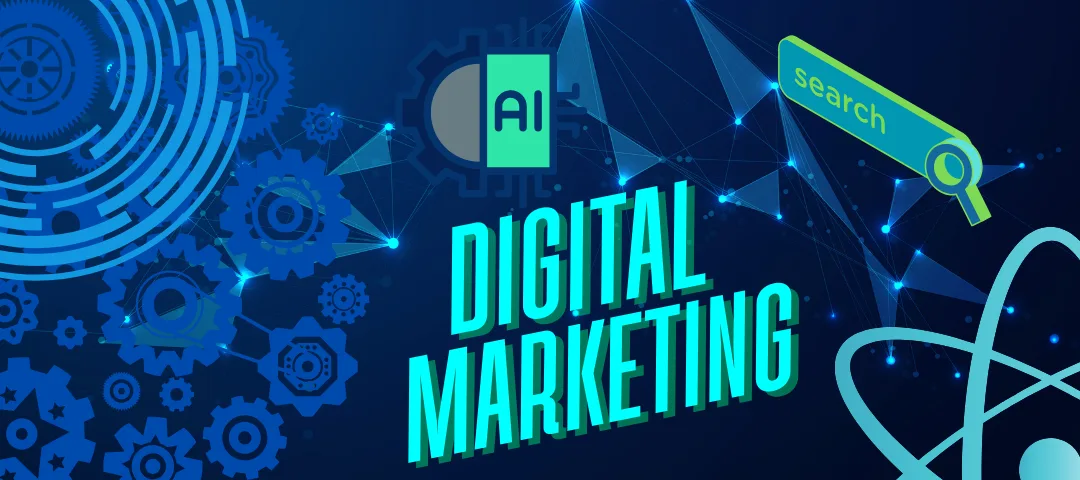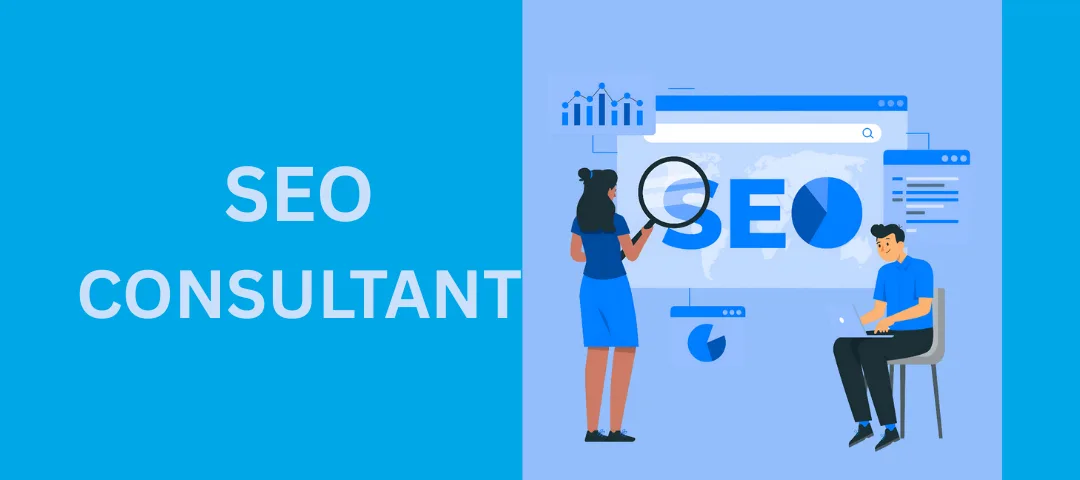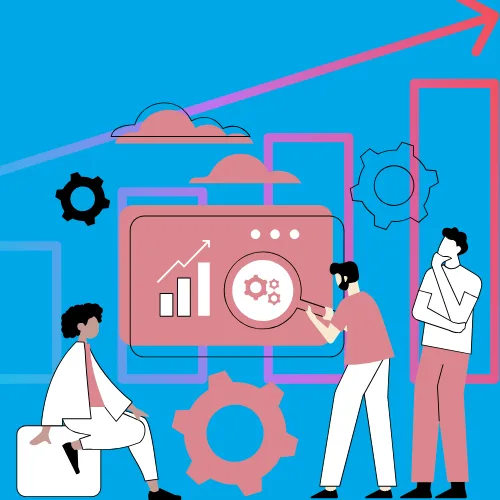Artificial Intelligence (AI) in Digital Marketing: Shaping the Future of Business
Table of Content
- Introduction
- Understanding Artificial Intelligence (AI)
- The growth of Digital Marketing and the rising of AI
- From Traditional to Digital
- The Data-Driven Era
- Benefits of AI in Digital Marketing
- AI’s Emergence in Digital Marketing
- Key Uses of AI in Digital Marketing
- How AI is Revolutionizing SEO
- Challenges of Integrating AI in Digital Marketing
- The Future of AI in Digital Marketing
- Advantages of AI in Digital Marketing
- Challenges and Ethical Considerations
- Future Trends in AI and Digital Marketing
- Strategies for Businesses to Leverage AI in Digital Marketing
- Case Studies: AI Success Stories in Digital Marketing
- Conclusion
Introduction
In recent years, we’ve witnessed incredible technological advancements that have transformed how businesses develop their marketing strategies. One of the most significant innovations is Artificial Intelligence (AI), which is fundamentally changing the landscape of digital marketing. AI require machines emulating human intelligence processes, permit them to perform tasks that usually require human-like thinking, including learning, reasoning, problem-solving, and language understanding. As digital marketing leans more toward data-driven and customer-focused approaches, AI equips businesses with the capabilities to analyze vast data sets, forecast consumer behavior, tailor experiences, and optimize marketing campaigns in real time.
This exploration delves into the diverse roles AI plays in digital marketing, highlighting its applications, advantages, challenges, and future possibilities. By grasping these elements, businesses can leverage AI to gain a competitive edge, enhance customer engagement, and stimulate growth.
Understanding Artificial Intelligence (AI)
AI require design machines that imitate human intelligence, designed to think, learn, and resolve problems akin to humans. Within digital marketing, AI incorporates various technologies, such as machine learning, natural language processing, computer vision, and data analytics, empowering marketers to automate tasks, analyze data effectively, and offer personalized experiences.
The growth of Digital Marketing and the rising of AI
From Traditional to Digital
Over the last few decades, digital marketing has go through a amazing modification. What started with straightforward online ads and static websites has evolved into a dynamic and intricate landscape that includes social media, search engines, content marketing, email campaigns, and more. As consumer behavior increasingly shifted towards online interactions, businesses found themselves in need of innovative strategies to connect, engage, and convert their audiences.
The Data-Driven Era
The rise of big data analytics has been crucial in this evolution. Marketers now have access to an incredible amount of consumer data, allowing for deeper insights into preferences, behaviors, and buying patterns. However, the challenge lies in processing and extracting actionable insights from these vast datasets—enter AI, which has become a game changer in the field.
Benefits of AI in Digital Marketing
- Enhanced Personalization: AI analyzes user behaviors and preferences, empowering marketers to deliver tailored content and recommendations.
- Automation of Repetitive Tasks: With AI-driven tools, tasks such as email marketing, social media posting, and ad management can be automated, freeing up time and resources.
- Data-Driven Decision Making: AI processes enormous volumes of data in real time, providing actionable insights for more strategic marketing decisions.
- Improved Customer Experience:AI-enabled chatbots and voice assistants deliver round-the-clock customer support, significantly boosting user satisfaction.
- Optimized Advertising Campaigns:AI helps pinpoint the most effective channels, target audiences, and ad formats, ensuring maximum return on investment.
AI’s Emergence in Digital Marketing
The incorporation of AI into digital marketing strategies began gradually, starting with basic automation tools. As technology advanced, particularly in machine learning, natural language processing (NLP), and computer vision, AI has developed into a vital component of modern marketing practices. Today, it plays a key role in automating tasks, personalizing content, and delivering predictive analytics at an unparalleled scale.
Key Uses of AI in Digital Marketing
- Analyzing Customer Data and Segmentation
AI technologies are adept at examining large datasets to uncover patterns, allowing marketers to segment audiences according to behaviors, preferences, demographics, and purchasing habits. Such division allow a more accurate approach to messaging and offers.
For instance: AI can categorize customers into groups like regular buyers, budget-conscious shoppers, or seasonal patrons, facilitating targeted campaigns that resonate deeply.
- Personalization and Enhancing Customer Experience
In the realm of digital marketing today, personalization is paramount. Tools powered by AI can provide individualized content, product suggestions, and special offers instantly.
Recommendation Systems: Brands like Amazon and Netflix harness AI to recommend products or content tailored to user activity, significantly boosting engagement and conversion.
Dynamic Content Delivery: Websites can modulate their content on the fly based on visitor data, ensuring that the information remains relevant and enriching the overall user experience.
- Chatbots and Conversational AI
AI-driven chatbots offer quick customer support, respond to inquiries, and assist users along their purchasing journey around the clock.
Advantages: These systems cut down response times, reduce operational costs, and enhance customer satisfaction.
Recent Developments: Current chatbots utilize NLP to comprehend complex queries and engage in conversations that mimic human interaction.
- Predictive Analytics and Customer Insights
AI models scrutinize historical data to forecast future behaviors, paving the way for proactive marketing initiatives.
Guide Prioritization: Recognize which expectation are more likely to transform.
Customer Retention: Identifying warning signs that customers might disengage, enabling timely intervention.
- Content Creation and Optimization
AI tools aid in produce and clarify numerous types of contented, from headlines to product descriptions and advertising work.
Automated Content Generation: Platforms like Wordsmith can produce news articles or product overviews efficiently.
A/B Testing: AI can analyze which headlines or visuals perform best in campaigns, ensuring optimal outcomes.
- Programmatic Advertising
AI facilitates real-time bidding for ad spaces across different platforms, guaranteeing that ads connect with the appropriate audience at the ideal time and cost.
Key Benefits: Enhanced efficiency, improved targeting, and increased return on investment.
- Voice Search and Intelligent Assistants
As voice-activated devices become more prevalent, the optimization of voice search via AI is essential.
Implications: Marketers must adjust their content to align with voice queries and integrate voice search strategies into their broader SEO plans.
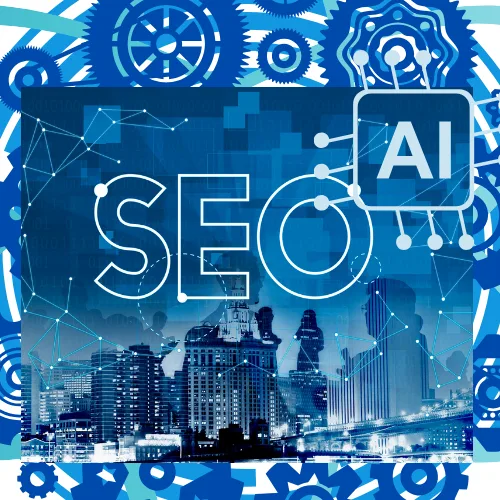
How AI is Revolutionizing SEO
1. Content Optimization: AI meticulously examines high-performing content, offering tailored suggestions for improvements that can boost search rankings.
2. Voice Search Enhancement: As voice search becomes a staple in user behavior, AI ensures our content is optimized to cater to this growing trend.
3. Keyword Discovery: With AI tools, identifying trending keywords and gaining insights into user search patterns has never been easier.
Challenges of Integrating AI in Digital Marketing
1. Data Privacy Issues: The extensive collection and analysis of user data can lead to significant privacy concerns.
2. High Costs of Implementation: For smaller businesses, the investment in advanced AI tools can be a financial burden.
3. Risk of Over-Automation: Relying too heavily on AI may stifle human creativity within marketing strategies.
The Future of AI in Digital Marketing
The influence of AI in digital marketing is set to expand, powered by advancements in machine learning, natural language processing, and data analytics. Companies will harness AI to achieve hyper-personalization, streamline customer support, and refine data-driven approaches.
Advantages of AI in Digital Marketing
1. Stronger Customer Engagement: AI-driven personalized experiences build closer connections with consumers, enhancing loyalty and boosting conversion rates.
2. Boosted Efficiency and Automation: By automating tasks like email marketing and reporting, AI allows marketers to concentrate on strategic priorities.
3. Improved Data Utilization: AI converts raw data into insightful actions, leading to informed decision-making.
4. Higher Conversion Rates: Campaigns driven by AI insights typically achieve greater success, with improved click-through and conversion rates.
5. Cost Efficiency: Automation and precise targeting contribute to minimizing wastage in advertising budgets and reduce operational expenses.
6. Competitive Edge: Companies that adopt AI early on can outpace competitors by delivering relevant, timely, and personalized marketing communications.
Challenges and Ethical Considerations
1. Concerns Over Data Privacy: Given its heavy reliance on consumer data, AI presents issues surrounding privacy, consent, and data security. Marketers must navigate regulations like GDPR and CCPA meticulously.
2. Bias and Fairness: AI systems may unintentionally harbor biases from their training data, leading to unfair targeting or exclusion in marketing efforts.
3.Dependence on Technology: Relying heavily on AI can diminish the personal touch in marketing, which might affect how authentic a brand feels and the emotional bond it forms with consumers.
4. Implementation Costs : Though AI can lead to savings down the road, the initial costs for technology, skilled talent, and necessary infrastructure can be quite high.
5. Skill Gaps : To use AI effectively, organizations often need specialized skills, which means investing in training current employees or bringing in new experts.
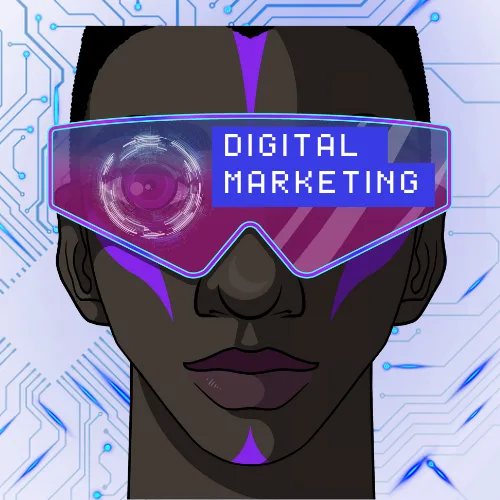
Future Trends in AI and Digital Marketing
1. Hyper-Personalization
As AI technology evolves, the ability to create deeply personalized experiences will improve, targeting individual preferences in real-time.
2. Integration of Augmented Reality (AR) and AI
The fusion of AR and AI will craft immersive shopping experiences, allowing customers to virtually try on products.
3. AI-Driven Content Creation
Automated storytelling and content generation will evolve, lessening the need for human creators in some areas.
4. Voice and Visual Search Optimization
As voice and visual search grow in use, optimizing for these methods will be essential.
5. Ethical AI Development
Future applications of AI will focus on transparency, fairness, and privacy to earn and maintain consumer trust.
Strategies for Businesses to Leverage AI in Digital Marketing
1. Invest in Data Infrastructure
Establishing strong data collection and management systems is crucial for the successful implementation of AI.
2. Focus on Customer-Centric AI Solutions
Choose tools that enhance customer experience and interaction as a priority.
3. Foster AI Skills and Culture
Provide training for marketing teams on AI concepts and nurture a culture of innovation.
4. Start Small and Scale
Begin with pilot projects in specific areas, assess the outcomes, and expand on successful initiatives.
5. Ensure Ethical Compliance
Put in place policies that protect user privacy and promote transparency.
Case Studies: AI Success Stories in Digital Marketing
1. Amazon’s Personalized Recommendations
Amazon harnesses AI to analyze user browsing and purchase data, boosting sales and enhancing customer loyalty through tailored recommendations.
2. Netflix’s Content Optimization
Using AI algorithms, Netflix personalizes viewing suggestions and optimizes content delivery, even shaping original content based on viewer interests.
3. Sephora’s Virtual Artist
With its AI-powered virtual try-on app, Sephora allows customers to test makeup products online, increasing engagement and lowering return rates.
4. H&M’s Visual Search
H&M employs AI-driven visual search functionality, enabling customers to upload images and find similar items, streamlining the shopping experience.
Conclusion
The impact of Artificial Intelligence on digital marketing is profound, paving the way for exceptional opportunities in personalization, automation, and data-driven decision-making. Its diverse applications, from customer segmentation and predictive analytics to chatbots and programmatic advertising, enhance the efficiency and effectiveness of marketing efforts.
Yet, embracing AI comes with its own set of challenges, including data privacy concerns, potential biases, and implementation costs. As technology advances, it’s clear that the future will showcase even more advanced and seamless integration of AI into marketing strategies, with a heightened focus on ethics and the importance of consumer trust.
For businesses wishing to thrive in this digital age, adopting AI has become a necessity rather than a choice. A strategic approach—rooted in ethical practices, a commitment to ongoing learning, and a focus on customer needs—will enable companies to harness AI’s true potential, creating personalized experiences, optimizing campaigns, and nurturing lasting relationships with customers.
Clearly, the future of digital marketing is inextricably linked to artificial intelligence, promising a smarter, more responsive, and engaging digital landscape for brands and consumers alike.
